If your car jerks when you brake, it can be a scary experience. You may not know what is wrong with your car and whether or not it is safe to drive. This blog post will discuss what can cause a car to jerk when braking, and what you can do to fix the problem. It will also provide some tips on how to stay safe while driving in case of an emergency.
How to know if brake pads are getting worn?
When inspecting the brake pads for wear, there are a few tell-tale signs to look out for. The most obvious is if the pad material has become thin or missing from one side.
Another sign of worn brake pads is if you hear metal-on-metal contact when braking – this indicates that the metal backing plate of the pad has come into direct contact with the rotor and needs to be replaced immediately. Finally, any vibrations coming from your brakes when applying pressure, even lightly, most likely means your pads have lost their friction and need replacing.
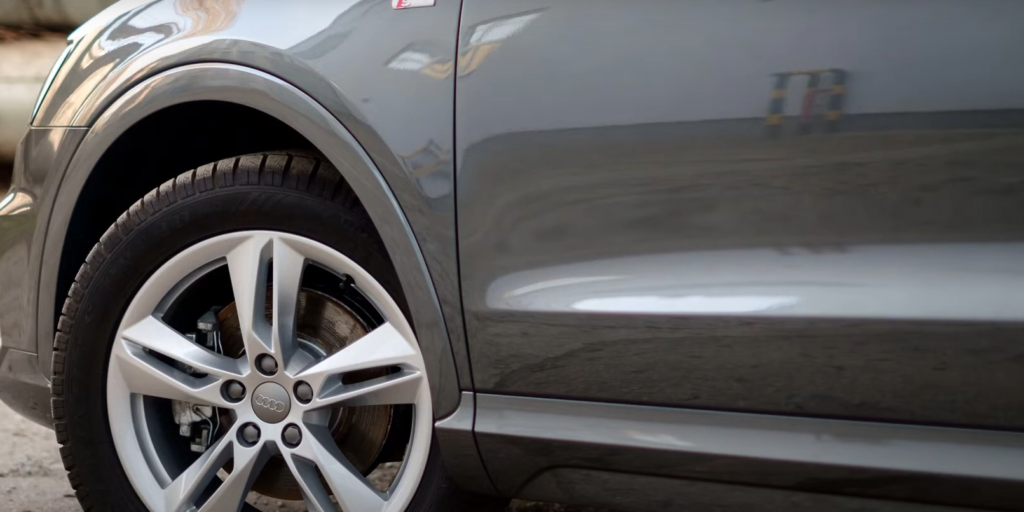
It is important to regularly inspect your brakes to stay safe, and it is recommended that the brake pads be checked at least every 6 months or 10,000 miles (whichever comes first). If you notice any of these signs of wear on your brakes, it is best to bring them in for service as soon as possible [1].
Causes of a Car That Jerks When Braking
Warped Rotors
Warped rotors are one of the most common causes of a car jerking when braking. This happens when the brake rotor, which is responsible for slowing down and stopping your vehicle, has become warped or uneven due to extreme heat exposure or excessive use of brakes. As you press on the brakes, the caliper will squeeze onto an uneven surface of the rotor, causing a jerking sensation as it moves across.
Brake Pads
The condition of your brake pads can also cause your car to jerk while braking. When your brake pads have worn down too far they may not make contact with the rotors evenly, leading to a jerky ride when you press on the pedal. Additionally, worn-out brake pads may also make grinding noises as they rub against the rotors.
ABS Actuation
Anti-lock brake systems (ABS) are designed to rapidly pump the brakes when you need to stop suddenly. In some cases, this rapid pumping can cause a jerking sensation if it is not calibrated correctly. If your car is equipped with ABS and it is causing it to jerk while braking, then you should have it checked out by a professional mechanic as soon as possible.
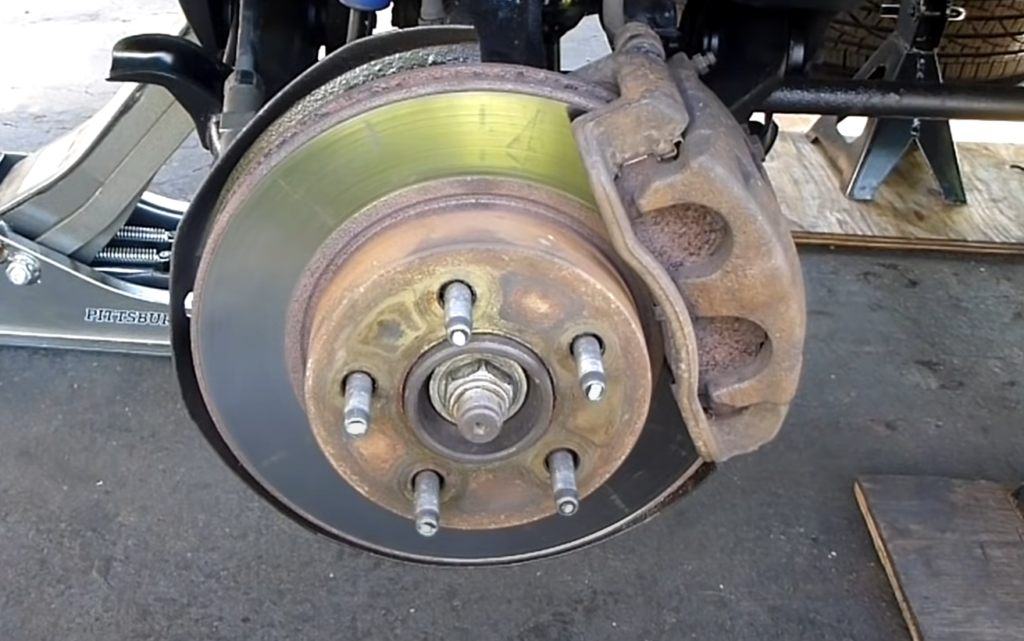
Brake Fluid Leaks
If your car has a brake fluid leak, this could also be the source of the jerky feeling that you experience while braking. The leaking fluid will reduce overall pressure in the brake lines, which can lead to an uneven application of force onto the rotors when you press on the brakes. Furthermore, low levels of brake fluid can also lead to degraded brake performance and a decrease in overall stopping power.
Compromised Brake Booster
Your brake booster is responsible for amplifying the force that you exert on the brakes when you press down on the pedal. If there is a problem with your brake booster, then this can lead to an uneven application of pressure onto the rotors, resulting in a jerky sensation while braking.
Seized Brake Caliper
A seized brake caliper can also lead to jerking when you press down on the brakes. This happens when the caliper does not move freely and applies uneven pressure onto the rotors, resulting in an uncomfortable ride.
Worn Steering/Suspension Bushings
Worn steering and suspension bushings can also cause a car to jerk when braking. This happens as the worn parts allow more movement in the suspension and steering components, which can lead to an uneven application of pressure onto the rotors. It is important to inspect these components regularly to ensure that they are in good condition [2].
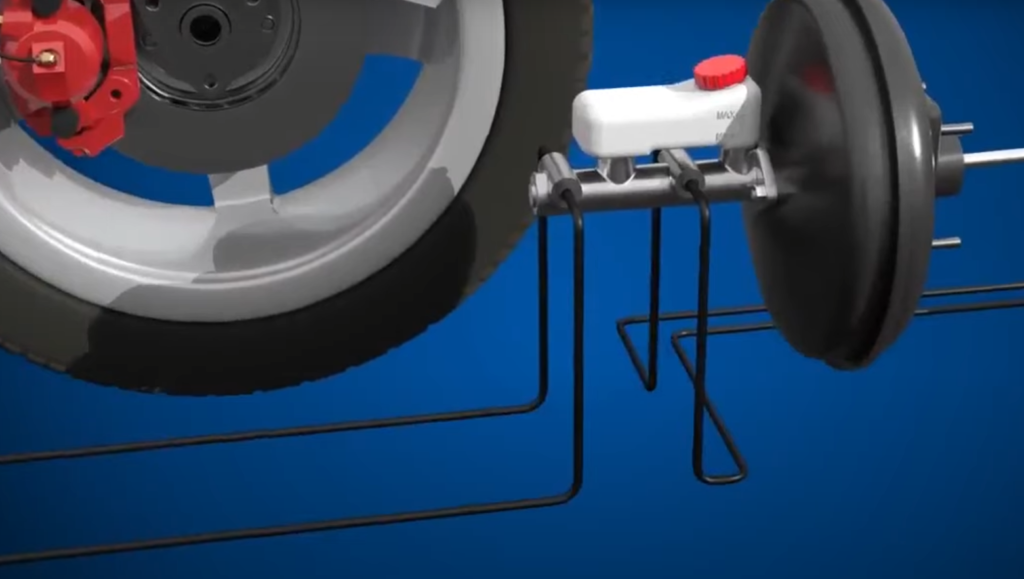
Causes of a Car That Jerks When Slowing Down
Transmission Issues
One of the most common causes of a car that jerks when slowing down is an issue with the transmission. This problem can range from something minor such as low or dirty transmission fluid to more serious issues such as worn-out bearings or broken gear. If your car is jerking when you slow down, it could be a sign that there’s an issue with the transmission and it should be checked out by a professional mechanic.
Spark Plug Issues
Another potential cause for jerking when slowing down is an issue with your spark plugs. Worn-out or faulty spark plugs can lead to misfires which can cause your engine to stutter and lurch when you slow down. Replacing your spark plugs at the recommended intervals can help to prevent this from happening.
Faulty MAF Sensor
The mass airflow (MAF) sensor is responsible for measuring the amount of air going into the engine. If it’s faulty or dirty, it can cause your car to jerk when you slow down as it won’t be able to properly adjust the amount of fuel being injected into the engine. A faulty MAF sensor should be replaced by a professional mechanic to get your car running smoothly again.
Compromised Ignition Coils
The ignition coils are responsible for providing the spark that ignites the fuel in your engine’s cylinders. If these coils become compromised or faulty, it can cause a misfire which can lead to jerking when you slow down. Replacing the faulty ignition coils should help to fix this problem.
Clogged Fuel Filter
If your car is jerking when slowing down, it could be a sign that the fuel filter is clogged and needs to be replaced. A clogged fuel filter will reduce the amount of fuel being supplied to the engine, causing misfires and resulting in jerking when slowing down. It’s important to replace a clogged or dirty fuel filter as soon as possible so that your car runs smoothly.
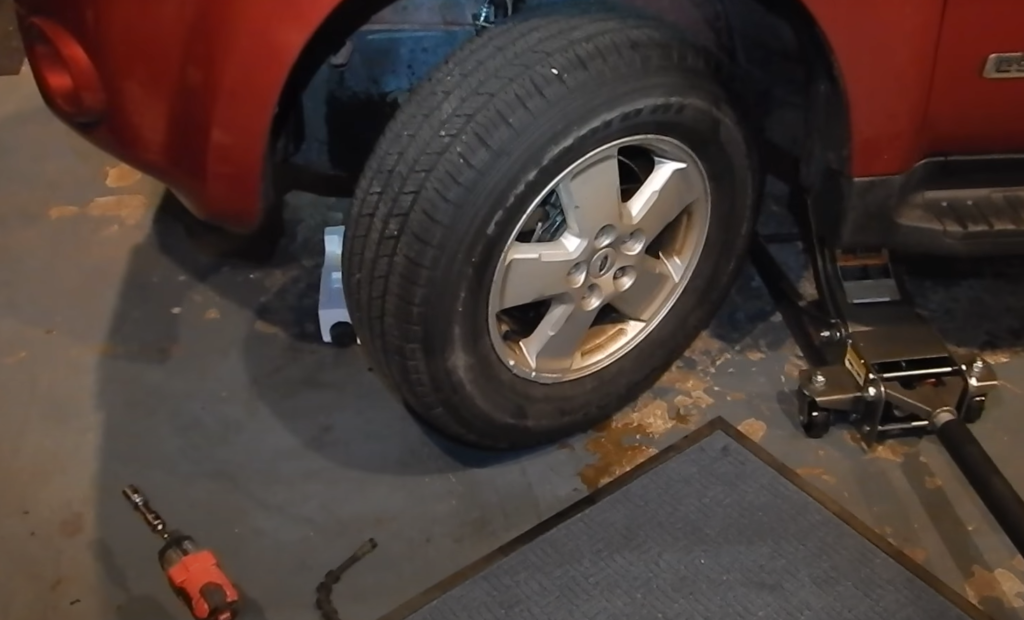
Vacuum Leaks
Vacuum leaks can also cause a car to jerk when slowing down. Vacuum lines run throughout your vehicle and carry air or other gasses from one component to another. If these lines become cracked, worn out, or disconnected, it can create an imbalance in the vacuum system, causing your car to jerk when you slow down. Replacing any faulty vacuum lines should help resolve this issue.
Causes of a Car That Jerks When Stopped
Ignition System Issues
One of the most common causes of a car jerking when stopped is an issue with its ignition system. This could be due to an inadequate spark, which is caused by fouled or faulty spark plugs, bad plug wires, or a failing ignition coil. To determine if this is the cause of your vehicle’s jerking behavior, you can take it to a mechanic who will use special diagnostic equipment and expertise to identify any issues with the ignition system.
Fuel Delivery Problems
If the issue isn’t with the ignition system, it may have something to do with your vehicle’s fuel delivery. This could be due to a clogged fuel filter or an incorrectly set carburetor. Often, simply cleaning out or replacing the fuel filter can solve this type of problem. If that doesn’t help, then it is likely that you will need to take it to a mechanic to properly adjust your carburetor.
Inefficient Air Delivery
In some cases, the cause of a car jerking when stopped may be due to an issue with air delivery. This could be caused by a dirty air filter which is blocking air from reaching the engine. To fix this, you will need to replace the air filter and make sure that there aren’t any other debris or foreign substances clogging up your vehicle’s air intake system.
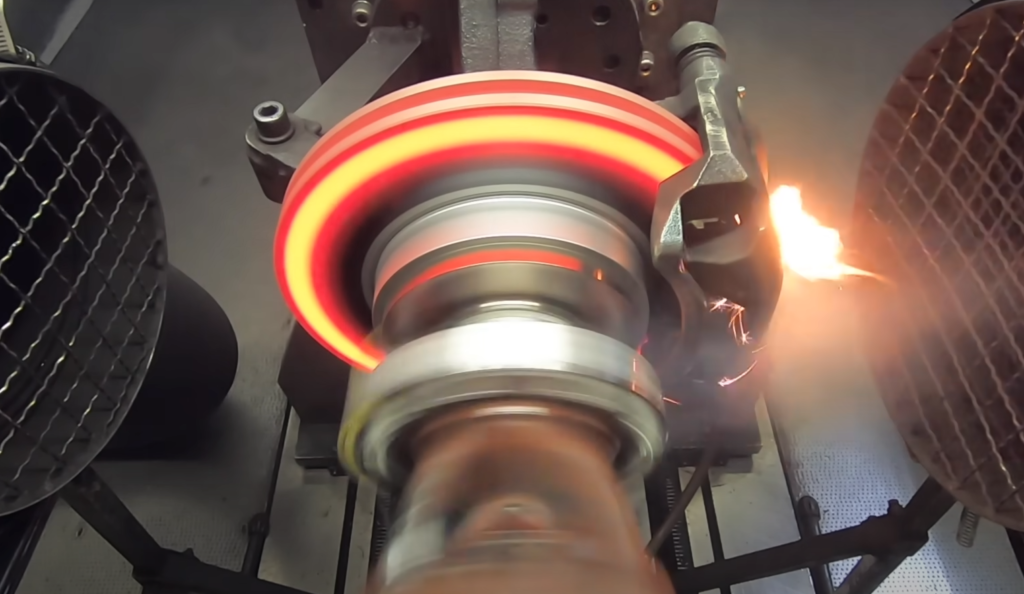
Computer Problems
It is also possible that the car jerks when stopped because of a problem with its onboard computer system. The computer in your vehicle helps to control everything from ignition timing to fuel delivery to transmission shifts, so any issues with it can quickly lead to performance problems such as jerking behavior.
Preventative Steps for Car Jerking Issues
To keep your vehicle running smoothly and prevent jerking behavior from occurring in the first place, there are several preventative steps you can take:
- Have regular maintenance done by a qualified mechanic
- Change your air filter and spark plugs regularly
- Make sure to keep the fuel system clean
- Check for any issues with the ignition system, such as faulty wires or bad spark plugs
- Have the carburetor adjusted if necessary
- Make sure that the computer system is functioning properly.
By taking these preventative steps you can ensure that your car stays running smoothly and avoids any annoying jerking behavior. By keeping up with regular maintenance and taking note of any potential issues, you can keep your vehicle running smoothly and prevent jerking behavior from occurring in the first place.
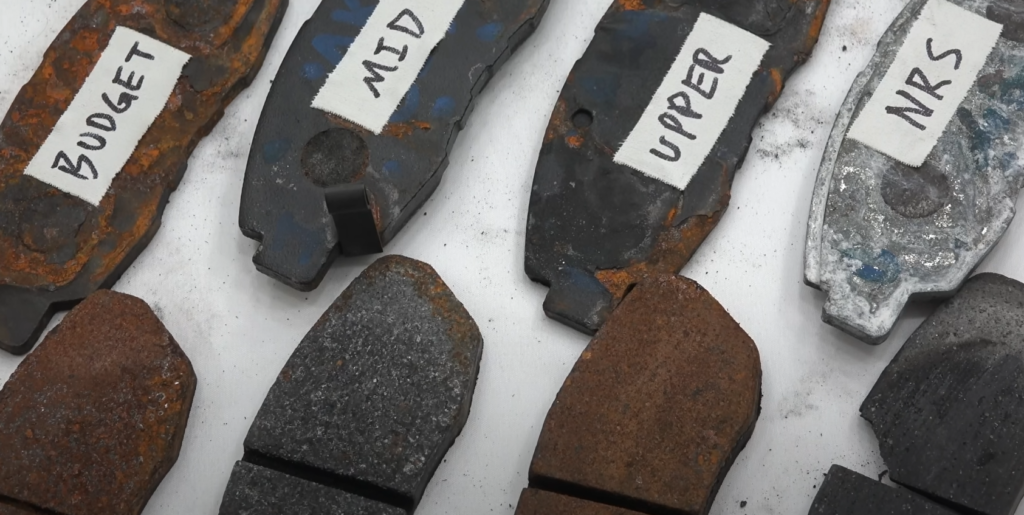
Smooth Operator: Addressing Jerky Braking in Your Car
Experiencing a jerky sensation when braking? Navigate the detailed table below to identify potential causes, recommended actions, and preventive measures to ensure a smoother and safer braking experience for your vehicle.
| Possible Cause | Symptoms | Actions to Take | Preventive Measures |
|---|---|---|---|
| 1. Worn Brake Pads | Jerking sensation, squeaking noise | Inspect and replace brake pads if worn | Regularly check and replace brake pads as part of routine maintenance |
| 2. Warped Brake Rotors | Shaking or vibration during braking | Resurface or replace warped brake rotors | Avoid aggressive driving and excessive braking to prevent rotor warping |
| 3. Brake Caliper Issues | Uneven braking, pulling to one side | Inspect and replace faulty brake calipers | Perform regular brake system inspections to identify issues early |
| 4. Low Brake Fluid | Soft brake pedal, decreased braking performance | Check for leaks and top up brake fluid; bleed the brake system if necessary | Regularly check and maintain proper brake fluid levels |
Explanation of the table:
- Worn Brake Pads: If you experience a jerking sensation and hear squeaking noises, inspect and replace worn brake pads. Regularly check and replace brake pads as part of routine maintenance.
- Warped Brake Rotors: Shaking or vibration during braking may indicate warped brake rotors. Resurface or replace the warped rotors, and avoid aggressive driving to prevent future warping.
- Brake Caliper Issues: Uneven braking and pulling to one side could be caused by faulty brake calipers. Inspect and replace them as needed, and perform regular brake system inspections to identify issues early.
- Low Brake Fluid: A soft brake pedal and decreased braking performance may be due to low brake fluid. Check for leaks, top up brake fluid, and bleed the brake system if necessary. Regularly check and maintain proper brake fluid levels.
FAQ
Why does my car jerk when I hit the brakes?
One of the most common causes of a car jerking, when you hit the brakes, is worn brake pads. If your vehicle has been in service for some time and you have not had the brakes replaced recently, it is likely that your brake pads are worn out and need to be replaced. Worn brake pads can cause increased vibration as they press against rotors, leading to a jerky braking experience.
Additionally, brake fluid can also become contaminated over time reducing its effectiveness which could lead to jerking or vibrations while braking. To determine if this is the issue, have a mechanic inspect your brakes and replace them if necessary. In addition, make sure to check and fill your brake fluid regularly as recommended by your vehicle’s manufacturer.
What causes the car to jerk when slowing down?
The most common cause of a car jerking when slowing down is worn brake pads. Worn brake pads can cause increased vibration as they press against rotors, leading to a jerky braking experience. Additionally, contaminated or low brake fluid can also cause the car to jerk while slowing down due to decreased effectiveness in the system. To determine if this is an issue, have a mechanic inspect your brakes and replace them if necessary. In addition, make sure to check and fill your brake fluid regularly as recommended by your vehicle’s manufacturer.
What is causing my car to shake when accelerating?
One of the most common causes of a car shaking when accelerating is misfiring spark plugs or other ignition issues. If your vehicle has been in service for some time and you have not had the spark plugs replaced recently, it is likely that they are worn out and need to be replaced. Additionally, if your fuel filter has become blocked or clogged with debris, this can cause the misfiring of the spark plugs which will lead to a shaking sensation while accelerating. To determine if this is an issue, have a mechanic inspect your ignition system and replace any faulty parts as necessary. In addition, make sure to check and replace your fuel filter regularly as recommended by your vehicle’s manufacturer.
What causes my car engine to start shaking?
A car engine may shake due to many different problems including worn-out spark plugs, a weak battery, dirty or contaminated fuel, or a problem with the ignition system. If your vehicle has been in service for some time and you have not had the spark plugs replaced recently, it is likely that they are worn out and need to be replaced.
How do I stop my car from jerking when starting?
A car may jerk when starting due to several different issues including a low battery, faulty spark plugs, an issue with the fuel system, or a problem with the ignition system. If your vehicle has been in service for some time and you have not had any of these components replaced recently, it is likely that they are worn out and need to be replaced. To determine if this is an issue, have a mechanic inspect your engine and replace any faulty parts as necessary. In addition, make sure to check and fill your fluids regularly as recommended by your vehicle’s manufacturer.
Does a dirty air filter cause your car to jerk?
A dirty air filter can cause your car to jerk due to decreased efficiency of the engine. A dirty or clogged air filter reduces the amount of air that can enter the engine, leading to a decrease in power and acceleration which can cause jerking. To determine if this is an issue, have a mechanic inspect your air filter and replace it if necessary. In addition, make sure to check and clean your air filter regularly as recommended by your vehicle’s manufacturer.
Can transmission cause the car to jerk?
Yes, transmission issues can cause the car to jerk. If the transmission fluid is low or contaminated, it can lead to decreased efficiency of the system which could lead to jerking or vibrations while accelerating. To determine if this is an issue, have a mechanic inspect your transmission and replace any faulty parts as necessary. In addition, make sure to check and fill your transmission fluid regularly as recommended by your vehicle’s manufacturer.
Can a driveshaft cause a vibration when braking?
Yes, a faulty or worn-out driveshaft can cause a vibration when braking. The driveshaft is responsible for transferring power from the engine to the wheels and if it is not functioning properly, this can lead to increased vibrations while applying brakes. To determine if this is an issue, have a mechanic inspect your driveshaft and replace them if necessary. In addition, make sure to check and fill your fluids regularly as recommended by your vehicle’s manufacturer.
Why does my car bounce when I brake?
Your car may bounce when you brake due to a worn-out suspension system, faulty braking components, or misaligned wheels. If the suspension system is worn out, it can lead to increased bouncing while braking as the shocks are unable to properly absorb vibrations. Additionally, if your brakes are malfunctioning, this can cause an increase in vibrations which will lead to bouncing. To determine if this is an issue, have a mechanic inspect your suspension and braking systems and replace any faulty parts as necessary. In addition, make sure to check and fill your fluids regularly as recommended by your vehicle’s manufacturer.
Can a bad brake caliper cause vibration?
Yes, a bad brake caliper can cause vibration. If the caliper is malfunctioning or has become worn out due to age, it can lead to increased vibrations which will be noticeable when applying brakes. To determine if this is an issue, have a mechanic inspect your brakes and replace any faulty parts as necessary. In addition, make sure to check and fill your fluids regularly as recommended by your vehicle’s manufacturer.
What is the grinding noise when I brake?
The grinding noise when you brake is likely caused by worn-out brake pads. When the brake pads become excessively worn, they can cause a grinding or squealing noise when applying brakes as the metal backing of the pad grinds against the rotor. To determine if this is an issue, have a mechanic inspect your brakes and replace any faulty parts as necessary. In addition, make sure to check and fill your fluids regularly as recommended by your vehicle’s manufacturer.
How to tell when it is finally time to change the fuel injector?
It is usually time to change the fuel injectors when you experience a decrease in fuel efficiency, engine misfiring, or rough idle. If the fuel injectors become clogged or blocked, it can restrict the flow of fuel which can lead to an increase in emissions and decreased performance. To determine if this is an issue, have a mechanic inspect your fuel system and replace any faulty parts as necessary. In addition, make sure to check and fill your fluids regularly as recommended by your vehicle’s manufacturer.
How should I respond if my car jerks specifically when I apply the brakes?
If your car jerks when you apply the brakes, it may indicate issues with the braking system. Start by checking the brake fluid level and ensuring it’s at the recommended level. If the fluid is low, top it up and see if the problem persists. If the issue continues, it’s crucial to have your brake system inspected by a professional mechanic to identify and address potential problems, such as worn brake pads, a malfunctioning caliper, or issues with the brake rotors.
Can worn brake pads be a common cause of a jerking sensation when braking?
Yes, worn brake pads can contribute to a jerking sensation when braking. As brake pads wear down, they may cause uneven braking and create a jerking or pulsating sensation. It’s advisable to have the brake pads inspected regularly and replaced as needed to ensure smooth and effective braking performance.
What steps can I take to prevent my car from jerking when I brake?
To prevent your car from jerking when braking, follow a regular maintenance schedule for your braking system. This includes checking and replacing brake pads, inspecting the brake fluid level, and addressing any unusual noises or sensations promptly. Proper brake maintenance contributes to safer driving and extends the life of your braking components.
Is it safe to continue driving if my car jerks when braking, or should I seek immediate attention?
If your car jerks when braking, it’s not advisable to ignore the issue and continue driving. The jerking sensation could be a sign of a braking system malfunction, which compromises your vehicle’s safety. Seek immediate attention from a qualified mechanic to diagnose the problem and perform any necessary repairs to ensure your brakes function correctly.
Can issues with the brake rotors cause a jerking sensation when braking?
Yes, issues with the brake rotors, such as warping or uneven wear, can lead to a jerking sensation when braking. Warped or unevenly worn rotors can affect the smooth operation of the braking system. If you experience jerking when braking, it’s recommended to have the brake rotors inspected, resurfaced, or replaced as needed to restore proper braking performance.
Are there DIY checks I can perform to identify the cause of my car jerking when braking?
While basic checks such as inspecting the brake fluid level and visual examination of brake pads can be performed, diagnosing the exact cause of jerking when braking often requires professional expertise. It’s recommended to have a qualified mechanic conduct a comprehensive inspection to accurately identify and address the underlying issues in the braking system.
Useful Video: Why Does My Car Shake When I Brake?: Everything You Need to Know | Dependable Car Care | Ventura, CA
Conclusion
If a car jerks when braking, it can be a sign of several potential issues in your brake system. The most common cause is that the brakes are worn and need to be replaced. Other causes include low brake fluid levels, air or dirt contamination in the brake system, worn-out rotors and calipers, faulty ABS sensors, and other mechanical problems. Any time you experience jerking when braking, it’s important to have your car checked by a qualified mechanic as soon as possible to ensure your safety on the road.
References
- https://nubrakes.com/blog/6-signs-its-time-to-replace-brake-pads/
- https://www.kia.com/la/discover-kia/ask/why-does-my-car-shake-when-i-brake.html

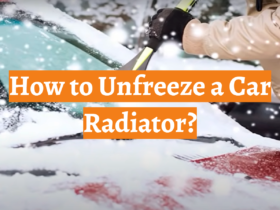
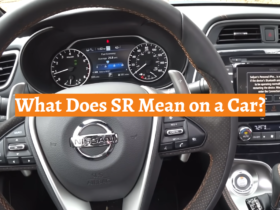
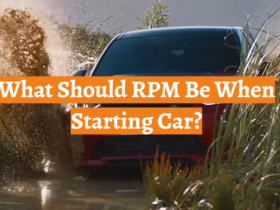
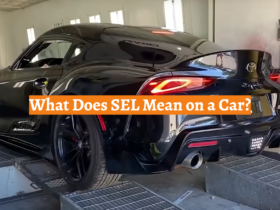
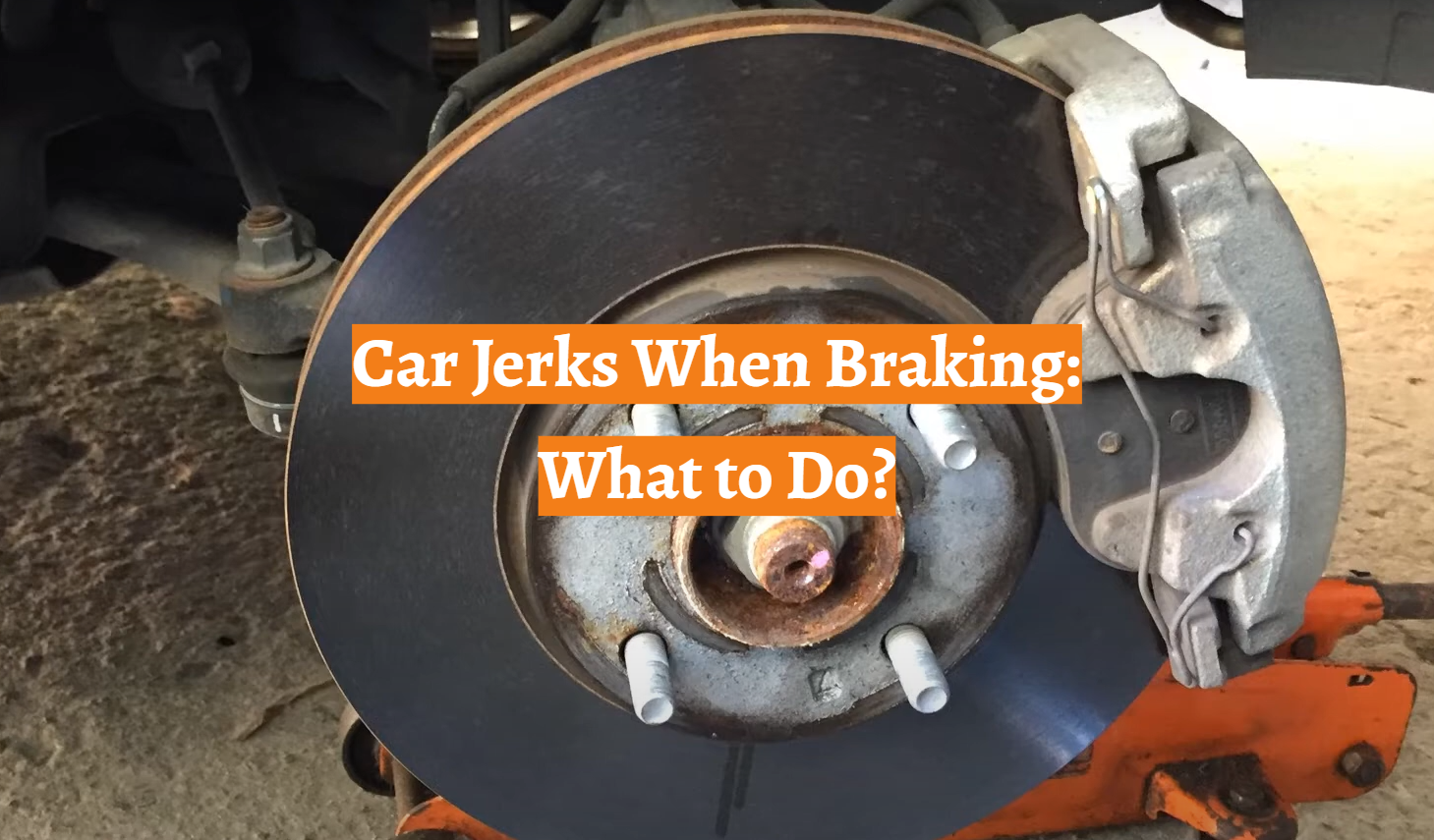
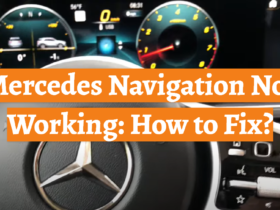
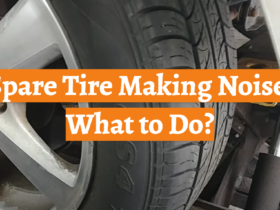
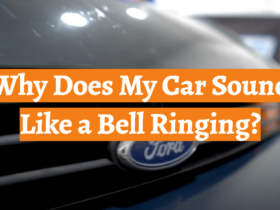
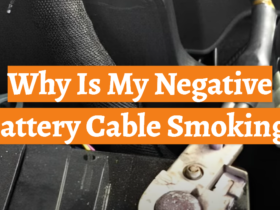
Leave a Review